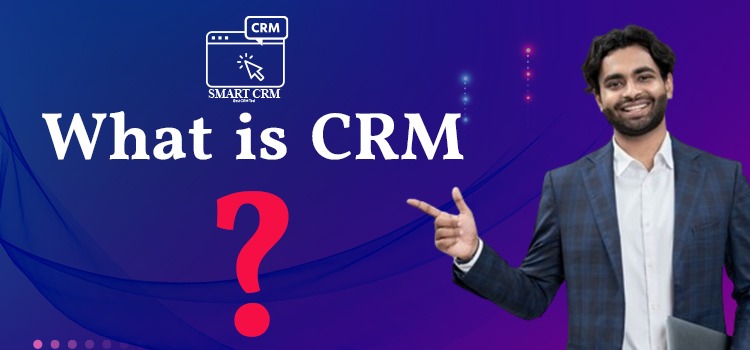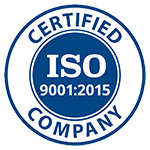What is CRM
What is CRM?
CRM stands for Customer Relationship Management. It is actually the technology and strategy that help organizations manage their interaction with customers-be they existing or potential-with regards to service and support of products. The major idea of CRM is to enhance business relationships, enhance efficiency, and enhance profitability.
Key Features of CRM Systems
- Contact Management: In essence, CRM is a repository of customer contact information, including names, addresses, telephone numbers, and social media profiles. It is designed in such a manner that the information stored is retrieved and manipulated with ease by any business.
- Sales Management: The CRM system aids salespeople in tracking leads and managing the sales pipeline for predicting future sales. In this respect, businesses can understand their sales processes more clearly and make decisions on concrete grounds.
- Customer Support: Most CRMs are equipped with a web-based customer service module to help enterprises respond quickly and efficiently to customer inquiries and problems. It can be integrated with ticketing, chatbots, and knowledge bases for better customer satisfaction.
- Marketing Automation: As the name suggests, with marketing automation features, most of the CRM solutions will allow one to segment an audience, send personalized messages to that audience, and track performance based on campaigns. It features adding in marketing initiatives so that the right message goes to the right audience.
- Analytics and Reporting: Through analytics and reporting, CRM systems keep organizations informed about many facts. For instance, businesses will analyze the performance of sales, track customer behaviors and trends, and hence come up with informed decisions.
Benefits of CRM
- Improved Customer Relationships: Because CRM systems keep detailed records of customer profiles and interaction histories, a business can personalize its communications to improve customer satisfaction and loyalty.
- Increased Sales: CRM systems easily enable the sales team to reduce the actual time required to close deals. With the help of the technology, it is possible to track leads and manage sales activities, thus ways in which businesses can upsell and cross-sell.
- Improved Communication: Because CRM systems share customer information among those people in an organization who need to deal with them, misunderstandings are minimized, collaboration is enhanced, and internal and external communication is improved.
- Data-driven decisions: Since CRM systems have embedded analytics, companies can determine a great deal about the inner dynamics of their company. With this type of information, businesses have the power to make much better decisions when striving to optimize processes and performance.
- Efficiency and Productivity: Automating tasks like data entry or follow-up reminders frees up these personnel resources to spend more time on efforts that are truly strategic in nature. This leads to the outcome of increased productivity.
Choosing the Right CRM
When a business is trying to decide on a CRM, it needs to go about it in the following way:
Scalability: Look for one that will grow as your company does, and expand to meet the growing needs.
Integration: This is done so that you find something that fits into your systems you may be operating at the moment.
User-Friendly Interface: A user-friendly interface is important to ensure faster adaptation among staff.
Customization: You want to choose a CRM that can be customized to fit your exact business needs.
Cost: Your budget and the overall cost of ownership - both implementation and ongoing maintenance.
Get Best CRM in MySoft Heaven (BD) Ltd
CRM is really capable of changing the way companies interact with their customer base. With CRM technology guiding them, companies are in a position to have more effective communication, therefore smoother processes and, ultimately, growth. Regardless of whether you are classified as a small business or defined as an enterprise, there is money to be saved and advantages gained from investing in a good CRM system, making you further competitive in today's marketplace.
FAQ OF CRM:
1. What does CRM stand for?
CRM stands for Customer Relationship Management. It refers to the practices, strategies, and technologies that companies use to manage their interactions with customers and potential customers.
2. What is the purpose of CRM?
The basic goal is to enhance business relationships with customers for greater efficiency and profitability by better management of customer interactions.
3. What are the main features of the CRM systems?
Contact Management: A central repository for storing customer contact information, so that access and updating of information is easily done.
Sales Management: Leads tracking tools, and the sales pipeline management capabilities for future sales forecasting.
Customer Support: Web modules to quickly respond to queries/problems of clients.
Marketing Automation: Profiling through segmentation, personalized communication, and performance tracking features for marketing campaigns.
Analytics and Reporting: Gain insight into the performance of sales, customer behaviors, and trends to make better decisions.
4. How does CRM benefit my business?
Improved Customer Relationships: At the level of detailed profiles, personalize the communication with customers to improve satisfaction and build their loyalty.
Increased Sales: Streamline the sales process and manage leads effectively. Close deals faster.
Enhanced Communication: Knowledge of customers is shared among teams. Misconceptions are not developed, and cooperation is smoothed.
Data-driven decisions: Avail analytics that would lead to insight for better strategic decisions.
Increased Efficiency: Automate the routine tasks for employees to channel this extra time into more strategic efforts.
5. What should I consider when selecting a CRM?
Scalability: Your CRM will be able to grow according to your business needs.
Integration: Easily integrate with your existing systems and tools.
User-Friendly Interface: Fast adoption by your team due to an easy-to-use interface.
Personalization: It should be able to tailor your specific needs in business.
Cost: Work out your budget for how much you are willing to pay for the implementation and maintenance afterward.
6. Is CRM system applicable to businesses of any size?
Yes, any business whatever the size-be it small or a huge can use this CRM system. Moreover, they are also scalable and flexible to a wide range of requirements.
7. How does CRM improve customer support?
Most CRM applications include customer support modules that very often ensure faster response times for inquiries, integration with ticketing, and knowledge bases that improve customer satisfaction.
- 10+ years of experience in the software market with ISO certification.
- We delivered Smart CRM to 70+ Companies in Bangladesh and they are satisfied with our services. Their satisfaction level is high because we always keep our promise to give the best service.
- Providing the best support and maintaining an excellent relationship with the leading companies.
- A complete solution to the total client management system providing the latest technology and upgrade version of Smart CRM. We will give a 3-month free service after buying our software.
- With Smart CRM, there are no hidden costs. Once you pay then use the full features of the software.
- Smart CRM is extremely user-friendly, doesn’t need extensive training, and is easy to navigate.
- Smart CRM offers a cloud-based Customer Relationship Management software that is securely accessible from anywhere.
- We complete all software setup and for the user, we give a special free training session.
- 24/7 you won't have to stay on hold for support and We also provide secured management whereas we know your information is valuable for your business.
- We use an excellent server for the backup of your all information.
- Smart CRM is a product that is constantly being updated based on data driven by our customers and their feedback.
- Smart CRM is more than just a repository for your contacts and customer data. This data is secured with hassle-free cloud computing.
- It is a dynamic software, any part of it can be customized to suit your company. You can even choose what you wish to see and remove what you don't.


